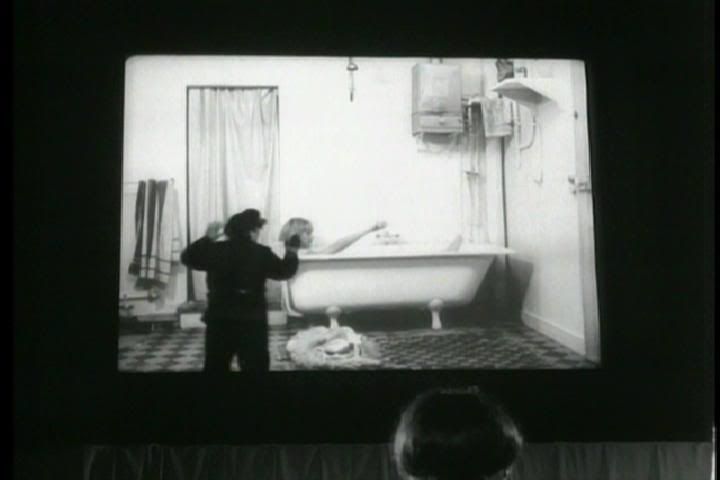
From Godard's 1960s run of films stretching from Breathless to Week-end, possibly the least well-known is his 1963 fifth film, Les Carabiniers. There's possibly a good reason for that, though. I'm of the opinion that Godard didn't make a bad film in this period from 1959-1967, but Les Carabiniers is the least fully formed of these movies, more of a transitional work in which Godard could experiment with form. Taken on its own merits, outside of the canon of Godard's 60s filmography, it's a bit boring — especially the lengthy postcard-viewing scene which forms its climax — and its ideas work far better on paper than they do on the screen.
It's only as a part of Godard's 60s work that Les Carabiniers takes on greater significance. Many of the political ideas which would come to dominate his filmmaking as the decade wore on received their first, tentative airing here. The film follows two peasants who are enticed, by promises of wealth and power, into joining the King's army and going to war. The bulk of the film, after they enlist, shows their wartime exploits, with scenes of carnage and violence alternated with text screens showing the soldiers' letters to the women waiting for them back home. The letters flippantly and casually describe rape, pillaging, mass executions, and battles, then offhandedly add that "it was a nice summer nevertheless." The film's premise — that war is an exploitation of the poor for the goals of the rich — clearly originates in Marxist thought. This becomes especially apparent in a scene where the soldiers come across a young woman who berates them for not understanding the role they play in the class struggle. Of course, they execute her, though not without hesitation.
Les Carabiniers bogs down a bit in the prolonged symbolic scene where the two young soldiers, freshly returned from war, show the women the spoils of war: a suitcase full of postcards cataloguing the full contents of the world. The satirical point is obvious, but the scene drags on too long without much of Godard's characteristic wit and subtlety. There are flashes, though, even here, in references to Felix the Cat and Rin Tin Tin. But this scene mostly demonstrates the problems of this early film from Godard. Its ideas are continually interesting and indicative of the director's future areas of examination: war, capitalism and socialism, the proletarian classes, the strained relationships between the genders caused by social and political forces. These ideas, though, aren't realized with the precision and depth and visual brilliance that Godard would bring to bear on his later efforts. Les Carabiniers remains primarily interesting as a transitional work, a deconstruction of the war film genre just as his other films from this period deconstructed noirs, musicals, and spy thrillers.

2 comments:
I just watched Luc Moullet's The Smugglers, which wasn't that great either, but I seem to have a but more respect for Les Carabiniers after seeing it. Both seem to be mixing pastiche and politics unenthusiastically, and it's hard to not compare the two in retrospect, but it really makes the Godard something to behold. Strangely enough, it may be worth seeing just to better appreciate Godard's film.
Genevieve Galea is Emmanuelle Beart's mother.
This is her only film.
Post a Comment